written by Carl Slaughter
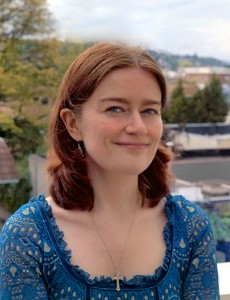 Rhiannon Held is a frequent panelist at writer’s conferences. She is a archaeologist by profession. She is the author of the Silver series, an urban fantasy published by Tor. In this interview, she answers questions about character development and world building, then wraps up by sharing her take on critique groups.
Rhiannon Held is a frequent panelist at writer’s conferences. She is a archaeologist by profession. She is the author of the Silver series, an urban fantasy published by Tor. In this interview, she answers questions about character development and world building, then wraps up by sharing her take on critique groups.
CARL SLAUGHTER: Before discussing writing advice, let’s give writers a peek at your own stories. Especially the premise and the setting. I’m particularly interested in the fact that the werewolves in your Silver stories don’t involuntarily transform on full moon nights and are werewolves by birth rather than conversion. Isn’t that like a vampire that doesn’t suck blood, a witch that doesn’t cast spells, a dragon that doesn’t breathe fire, a mermaid that can’t swim, a zombie that’s not dead? Aren’t bite infection and involuntary transformation the age old curse of the werewolf?
RHIANNON HELD: You underestimate the diversity of the source material! If you look up the origins of the werewolf myth, you find a variety of different causes and symptoms in stories spread over time and geographic area. A werewolf could be a witch, murder, sorcerer, sinner, someone risen from the dead… They could transform with a spell, drinking from a wolf’s footprint, wearing a wolfskin belt, wearing an entire wolfskin, a Satanic ritual, rubbing their body with a salve, or†�you get the idea! Basically, it was a monster that was whatever the culture adapting it needed it to be, based loosely on the idea of a combination of a human with a powerful predator. Most mythological monsters are like that,compare Eastern dragons with Western dragons, for example. Both are dragons, but they are different based on what their cultures wanted them to symbolize.
So when I decided to write about werewolves, I thought first about what I wanted them to symbolize, and built their characteristics from there. The infected, involuntarily-transforming werewolf has been used so often to symbolize the animal side of human nature, I felt like there wasn’t much more to say about it. In creating werewolves who were a species with their own culture, history, and religion, I wanted to symbolize the stress of belonging to one secret culture at home and one public culture at work and school, as has been the plight of immigrants and persecuted minorities all over. Essentially, I’ve done what storytellers have done through the ages: I adapted a familiar monster to tell a new story. That’s what monsters are for!
Q: The vast majority of creatures in fantasy novels are the classic creatures that have long since been incorporated into our culture, and therefore, unfortunately, well developed creatures. Are there any more new angles on vampires, werewolves, etc? Or is the reader appetite still strong enough authors don’t need to work at developing original fantasy creatures any time soon?
A: The seeds of half this answer lie in the one above. There are always new angles on old creatures, if you dig deep enough to make them symbolize new things. I personally think that’s the key: not trying to tweak a few of the usual characteristics of a creature, or to find a new situation to put the creature into, but really creating a new purpose for the creature. Take vampires, for example. In their current form, they tend to symbolize the temptation of pleasure weighed against the immorality or evil of gaining that pleasure. If you stay with that symbolism, and try to put the vampires in a mall instead of a castle, or have them drink blood from suckers in their hands instead of using fangs, you’re still not very original if they remain young, beautiful, and sexy. Those are the things that make the temptation symbolism work. If I decided instead to make vampires symbolize dementia and the trouble of prolonging human lifespan without also extending mental acuity, I might do something like make the vampires drain chi and memories along with it. Then they’d start to lose their self-identity as they become overwhelmed with other people’s lives. Which sounds like an intriguing idea, actually†�
The other half of this answer is that I think adapting old creatures and making up new creatures are apples and oranges. If I want to adapt an old creature, I want to adapt an old one, and if I want to make a new one, I want to make a new one. They’re completely different processes, that you’d do for different reasons, not simply because the other one had failed. An adapted old creature allows you to use a shorthand with your reader. You don’t have to explain the whole creature, you can just explain the creature’s differences from the standard set of characteristics. Having saved all that time, you can use it build your characters, or your intricate plot, or whatever else instead. If you make a new creature, on the other hand, you’re making a choice to spend some time at the beginning of your story or novel making sure your reader is comfortable with it. Neither is a bad thing, but different stories are paced differently, and if your story idea is based on snappy, exciting action from the first page, you run the risk of killing it by doing a lot of explaining of your creature. It also often varies by sub-genre: I’ve noticed more traditional fantasy and science fiction novels, both of which are known for their immersive, detail-oriented world-building, often have their new creatures visible from the very beginning. Urban fantasy, better known for fast pacing, often has its new creatures discovered by the characters over the course of the novel. That way, the reader finds out about the creature with the characters, rather than needing all of the creature’s characteristics at the beginning.
Q: When do you use a fantasy creature as a metaphor, when do you use their inherent nature to develop to create a crucible or dilemma or conflict for the main character, when do they just contribute to the world building, and when are they just for fun? Does every story have to have a humanoid character or would readers respond to a story that’s all creatures? How do you develop fantasy creatures that human readers can relate to?
A: Everything’s a metaphor! Well. Most things. I happen to find metaphors fun to embed, but I don’t think they’re usually enough in and of themselves to justify a story element. So I like to write creatures for the purpose of conflict, world-building, or other story structure, and include the metaphor as a bonus Easter egg. I think if your creature is a protagonist, they do have to have internal conflict, but that’s what makes a good character in general. Their creature nature doesn’t necessarily have to be the thing providing the conflict,but it’s a useful tool for the job. Creatures can certainly be important for world-building, especially in urban fantasy. When you’re using the real world as a basis, the points of difference, like creatures, can be especially important. Finally, “just for fun”: I think fun is a category much like metaphor, in that it piggy-backs with something else, but isn’t necessarily a strong enough reason on its own. There’s a certain amount of “it’s there because it’s cool” a writer can get away with, but not a lot.
In the case of creature protagonists, I think that it’s generally a good idea to have at least one that’s human enough for people to relate to. That doesn’t mean they have to be physically humanoid. What they have to have is a set of emotions or motivations the readers would recognize. If they recognize the emotion or motivation as something they’ve felt themselves, they can relate to it and through it, the character. If your protagonist is emotionally recognizable, I think you could certainly have a story entirely about creatures. In fact, that can open up a whole suite of new plot possibilities, when you don’t have to spend space on “how does the human protagonist relate to the creatures?”
Q: What’s the difference between an urban fantasy and paranormal romance and does it really matter?
A: I think the difference between urban fantasy and paranormal romance is a useful one, because they provide different reading experiences. In PR, the plot elements support the romance. In UF, the romantic elements provide a little spice to the plot. A reader who wants to read PR will probably be focusing on and rooting for the romance. A reader who wants to read UF will probably be focusing on and rooting for the plot to be resolved. That sounds fairly straight forward, but now imagine swapping those two fans’ books. The PR reader gets a UF, and is disappointed and angry because the romantic couple hardly have time for a single kiss what with all the plot crises and they don’t even get a happy ending. The UF reader gets a PR and is disappointed and angry because the plot is set aside for pages at a time while the couple flirts.
The time I see PR and UF most confused is when people are observing them from a great distance based on their familiarity with fairly unrelated genre, like military SF. From a distance, smaller details are hard to see. But though cozy mysteries and police procedurals are both mysteries, that doesn’t mean your Miss Marple-loving grandmother wants to read the gory descriptions of multiple victims of a rapist serial-killer. It’s less about the specific elements than the reader experience those elements promise. Is the novel optimistic or pessimistic? Is it humorous? Is the humor cerebral or slapstick? Do we get deep into the characters’ heads? PR and UF offer fundamentally different reading experiences on that level, whether they both happen to feature vampires in the modern day or not.
Q: Do all female characters have to be a kick ass heroine, high priestess, chosen one, or a wicked witch? What about mothers, scientists, BFFs? Ender’s sister played a crucial role in his life, to such an extent his commanding officer appealed to her to exercise her influence over him, yet she wielded neither sword nor spell nor badge nor political authority. Do all main female characters have to be strong?
A: Who ever said those were the only choices for female protagonists? Really, any discussion of female protagonists could be greatly simplified by deleting the word “female.” Are the only possible protagonists fighters, religious leaders, chosen ones, or magic users? Of course not, even in D&D! Do all protagonists have to be strong? It depends on what you mean by strong. They have to be active, and do things instead of sitting around while people around them act. They have to be compelling to make the reader want to keep reading. They have to be well-developed so they’re like real people, instead of cardboard cut-outs reciting lines based on their single personality trait. In the past, female characters frequently fell down on all three of those things, especially the first and last. If a damsel waits to be rescued, that’s passive, not active. If she has no personality beyond the fact that she loves a man and cries a lot, she’s not well-developed.
Where I think people sometimes run into trouble is that they equate “strong character” with “physically strong character.” Male characters don’t have to be physically strong either,they can be physically weak and wily, diplomatic, charismatic, clever, persistent†�All of those characteristics and many others can lead to an active, compelling, well-developed character, male or female.
Q: How do you make characters realistic but interesting? Or does every character have to be exceptionally wise, intimidatingly sinister, remarkably intelligent, unusually skilled, etc.
A: I think it’s realistic to say that every well-rounded real person has a thing or two they’re good at. Not “the best at,” mind you, but good at. In character terms, competency in at least one area makes for a better character as well. If they’re competent at something, they can apply those skills to the problems the plot is throwing at them, which draws the reader in as they cheer the character along. I think there’s even a sweet spot, which you may have noticed if you’ve watched the Olympics. Obviously people who are completely untrained can’t even begin, so there’d be nothing to see, but people who are the best make a feat look too easy, and finish it too quickly. People who struggle at little at it but triumph in the end make us watchers realize the true scope of what they’ve accomplished. Characters who are competent but not the best struggle at the problems of the story and draw readers in.
I think the trouble beginning writers get into is equating “reasonable level of skill” or “high competency” with “best ever.” Why does a character have to be the best archer in the seven kingdoms when they’re the best archer in a castle at seige? Or the third best, while the first two are covering other gates? Being the prophesized one, or the only magic user of a certain type born in ten generations, etc. is in some ways even worse than being the best ever archer. Then the character is the best ever by virtue of being the only, yet they so often have no skills at all to have earned it. I think that method of making your character special can ring hollow very easily.
Confidence can be part of a compelling character as well. Justified confidence, that is. False confidence can come across deluded or arrogant, and make the character harder to relate to. And if a character is centered and confident about every aspect of their life, they probably don’t have much room to grow over the course of a story. But if the character has some of the reasonably good skills I was talking about above, and is confident about those skills, if not other areas of their life, you have a recipe for an interesting character.
Q: How does a female writer get inside a male character’s head for the reader to explore and vice versa? How does an emotionally and psychologically whole author develop a broken character?
A: By remembering that, underneath it all, we’re all human beings. Any character built from a foundation of “male” or “female” or “broken” rather than “human” who happens to be male, female, broken, pessimistic, optimistic, snarky, sunny…is destined to run afoul of stereotypes. After that foundation, I think research, keen observation, and empathy definitely help. When researching, you can read people’s accounts of their own experiences, or ask people about them. Then in your daily life, if you watch how people who differ from you react to a given situation, and then imagine how they must be feeling as they react, you’re well on your way to creating a character who differs from you in a similar way. Empathy also means that you understand someone’s emotions by casting them in your own terms, rather than dismissing those emotions as strange or alien. And casting others’ emotions in your own terms can be as simple as a manner of degree. Maybe you’ve never been broken, but you’ve certainly been bruised. That means you have an in to imaging what that feeling intensified might be like. When you’re finished, you can also always get a reader like your character to look it over and tell you if you’ve missed anything.
Q: Can religion play a significant role in a fantasy story? Doesn’t religion take away from the inherent creature-oriented nature of the fantasy genre?
A: Is fantasy creature-oriented? I’d argue it isn’t, even urban fantasy, and especially traditional fantasy. It’s as people-oriented as all the genres, and perhaps creature-decorated, though not always. I’ve seen as much magic-decorated traditional fantasy as creature-decorated.
That aside, what’s the role of religion? Personally, I think that every culture in any genre, fantasy or not, has to have an explanation for why the world exists and why it functions the way it does. That explanation doesn’t have to be religion, it could be science, or it could be something based on the particular magic system of the world, but it’s basic human nature that we need an explanation of some kind. I think that’s what writers sometimes forget: they remove religion but they don’t put anything in its place, leaving you with a culture of people who apparently don’t care what happens when they die, for example. As an anthropologist, I simply don’t believe that. Fantasy opens up your possible explanations, though, because instead of figuring the world was created by some invisible divine force, people could know the world was woven by the spirits that everyone’s seen flitting around in the depths of the woods. The explanation can be tangible.
That said, I don’t think any part of religion or the alternate explanation has to be the focus of a story. Real religions vary through time as well as space in how much they’re part of a particular culture’s daily life. If you want to tell a story that doesn’t have much to do with religion, you can set the religion or world explanation in the background. If you want to make religion a large part of a character’s daily life but not really impact the plot, you can do that too. There’s no reason not to use it to its full potential.
Q: What makes a good critique group? What makes a bad critique group? Do you even need a critique group?
A: I’ll start with the last part of that. I think every successful writer needs other eyes on their work to provide another perspective. Who those eyes belong to can vary. Beta readers, first readers, leaving it up to your editor…a critique group is an excellent source of other eyes as well as brainstorming partners, but I don’t think one is necessary if you can get thoughtful perspectives elsewhere.
What makes a good critique group are primarily the same qualities that makes a good person to critique your work in general. You want them to be able to quantify their initial reactions when reading, and start the process of figuring out what caused those reactions. Sometimes their suggestions for fixing problems might be useful, sometimes they might not, but the process of identifying the problems in the first place is the really key part. A beginning critiquer might say “chapter two bored me.” A more experienced critiquer might say “chapter two bored me and I think it’s because they’re talking in one room the entire time and they never disagreed.” Any reader can react, but figuring out a cause takes skill, and either that skill or the ability to develop that skill is what you want to look for in a critiquer.
A less helpful critiquer,I won’t necessarily say bad, because even advice that’s unhelpful can be offered with the best of intentions,can be one who either praises too much, or is too harsh. Saying “everything’s good” doesn’t help a writer improve, even if it makes them feel good to hear it. Phrasing problems harshly can make the writer shut down and not hear anything the critiquer says. In that case, it’s not a matter of them “not being able to take it,” it’s a matter of failed communication. The goal is to communicate a way to improve, and the best way to do that is to phrase the critique tactfully rather than letting your frustration or negative emotional reaction run rampant. That’s the difference between “this sucked so hard I wanted to burn the manuscript” and “this had some serious weaknesses that made it difficult to read.” The former is just bleeding off the critiquer’s frustration. It’s not giving the writer any additional information.
There are a few additional considerations when it comes to critique groups versus single critiquers. A good personality mesh is necessary among everyone, which is a more complicated proposition than finding a set of beta readers you can relate to individually. I’ve seen groups that cracked jokes all the time upset someone who didn’t use humor that way. I’ve also seen groups founder because one writer was prolific and no one else could ever finish anything. None of that’s about a right way or a wrong way, just about finding people who are a good fit. And a group that’s a good fit can be worth its weight in gold to your writing.
I thought I’d finish off with a little bit about what I’m working on right now, in case you were curious. I’m working on revising the first book in a new series. It’s urban fantasy once more, but leaving aside the creatures this time and focusing a magical system arising from myth.
 Carl Slaughter is a man of the world. For the last decade, he has traveled the globe as an ESL teacher in 17 countries on 3 continents, collecting souvenir paintings from China, Korea, Thailand, Vietnam, and Egypt, as well as dresses from Egypt, and masks from Kenya, along the way. He spends a ridiculous amount of time and an alarming amount of money in bookstores. He has a large ESL book review website, an exhaustive FAQ about teaching English in China, and a collection of 75 English language newspapers from 15 countries.
Carl Slaughter is a man of the world. For the last decade, he has traveled the globe as an ESL teacher in 17 countries on 3 continents, collecting souvenir paintings from China, Korea, Thailand, Vietnam, and Egypt, as well as dresses from Egypt, and masks from Kenya, along the way. He spends a ridiculous amount of time and an alarming amount of money in bookstores. He has a large ESL book review website, an exhaustive FAQ about teaching English in China, and a collection of 75 English language newspapers from 15 countries.



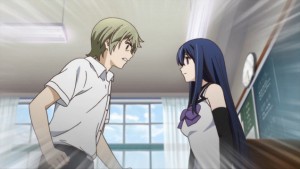 Brynhildr in the Darkness tried very hard to make me stop watching it, probably more so than any other series I can think of in recent years. On the one hand it has a smart and likeable main character who manages to pull off being a high school student protagonist without coming off as unrealistic wish fulfillment. Ryota is definitely not that powerful and works within the limitations of being an ordinary human caught up protecting artificial witches from the secret organization that created them.
Brynhildr in the Darkness tried very hard to make me stop watching it, probably more so than any other series I can think of in recent years. On the one hand it has a smart and likeable main character who manages to pull off being a high school student protagonist without coming off as unrealistic wish fulfillment. Ryota is definitely not that powerful and works within the limitations of being an ordinary human caught up protecting artificial witches from the secret organization that created them.
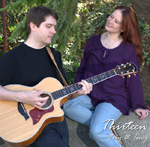
 IS FILK ON THE ITINERARY OF GENRE/INDUSTRY CONVENTIONS, FAN CLUB MEETINGS, WRITER WORKSHOPS, ETC, OR IS IT MORE INFORMAL?
IS FILK ON THE ITINERARY OF GENRE/INDUSTRY CONVENTIONS, FAN CLUB MEETINGS, WRITER WORKSHOPS, ETC, OR IS IT MORE INFORMAL?
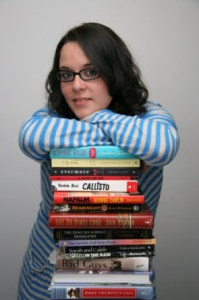
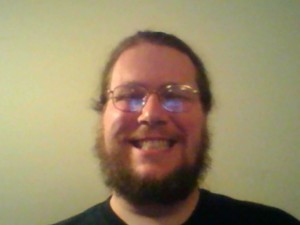
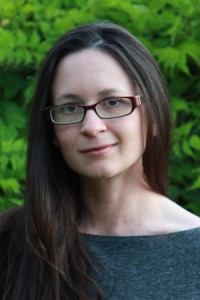
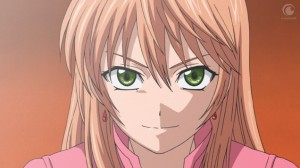 The World is Still Beautiful is based off an ongoing shoujo (girls) manga of the same name. Teenage Princess Nike comes from the small and relatively powerless Duchy of Rain, and in recent years a furious warlord known as the Sun King has conquered most of the known world. In exchange for leaving the Duchy of Rain alone, he asks for one of their princesses to be sent to him as a bride.
The World is Still Beautiful is based off an ongoing shoujo (girls) manga of the same name. Teenage Princess Nike comes from the small and relatively powerless Duchy of Rain, and in recent years a furious warlord known as the Sun King has conquered most of the known world. In exchange for leaving the Duchy of Rain alone, he asks for one of their princesses to be sent to him as a bride.